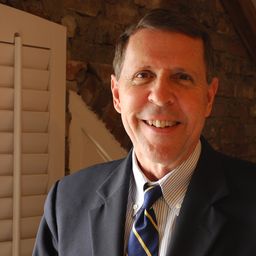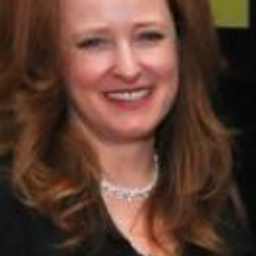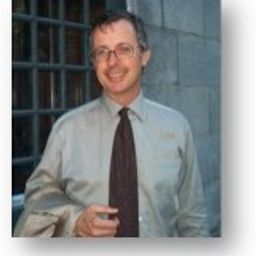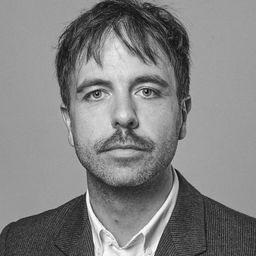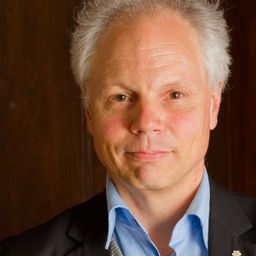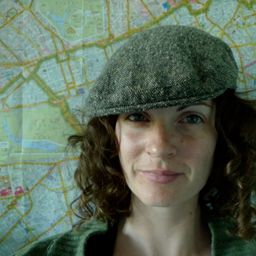
Jennifer C. Robinson
Jennifer holds a MA in Material and Visual Culture from the University College of London, a BA in Anthropology and History from the University of British Columbia, and is currently a PhD Candidate (ABD) in Visual Anthropology and Materiality in UVIC's Department of Anthropology. Her current doctoral research is an ethnographic study into the current exhibtion landscape of human rights in Canada. Based on interviews conducted with heritage professionals from eight different cultural institutions across Canada, this project analyzes the strategies and challenges of working with this strain of curatorial material; the partnerships formed in order to build emotionally charged exhibitions; the role of survivor testimony and material culture in processes of creating human rights exhibitions; and whether these exhibitions are contributing to broader discussions of human rights in Canada.
Sessions auxquelles Jennifer C. Robinson participe
Mardi 7 Juin, 2016
The Canadian Museum for Human Rights opened to the public in September 2014. Yet this "first museum solely dedicated to the evolution, celebration and future of human rights," met serious criticism from a variety of stakeholders before it even opened its doors. These stakeholders included Indigenous and Ukrainian communities, anti-poverty activists, feminists, gay rights activists, and disability advocates who questioned some of the museum's key curatorial choices in framing issues of righ...
Sessions auxquelles Jennifer C. Robinson assiste
Vendredi 3 Juin, 2016
What does heritage change for tourism? | Le patrimoine, ça change quoi au tourisme? Ce débat veut interroger les relations entre le tourisme et le patrimoine et dépasser ainsi les idées reçues sur l'antagonisme entre le tourisme "corrupteur" et le patrimoine qui en serait la victime. Il s'agit donc de repenser le tourisme comme un réel acteur du patrimoine, de sa valorisation et de son appropriation, y compris par les populations locales. Cela présuppose, au p...
Qu’est-ce que le patrimoine change à Montréal? Qu’est-ce que Montréal change au patrimoine? Ce débat vise à mettre en discussion l'évolution et le devenir du patrimoine dans la métropole du Québec en interrogeant les motifs de l'attachement (ou de l'indifférence) de la société civile et des décideurs, mais aussi en questionnant les moyens dont ils disposent pour agir sur le patrimoine. Au-delà de la fameuse "pierre grise" et des matériaux expressifs de l'identité historique de Montré...
Samedi 4 Juin, 2016
What if we changed our views on heritage? And if heritage has already changed? While, on the global scene, states maintain their leading role in the mobilization of social and territorial histories, on the local scale, regions, neighbourhoods and parishes have changed. Citizens and communities too: they latch on to heritage to express an unprecedented range of belongings that no law seems to be able to take measures to contain, often to the discontent of...
This session explores artist-history exchanges in the context of heritage sites, venues and spaces, and considers recent curatorial and artistic interventions and performative strategies, such as decolonial methodologies. Drawing on disciplinary art history, this session approaches heritage sites as strategically re-deployed historic structures that function as representational signs – artifactual objects furnished with other objects that cumulatively and, by virtue of their provenance, pr...
Many people are actively using working class heritage as a resource to reflect on the past and the present, and there is a growing tendency for the heritage of working class people to be interpreted and presented to the public in museums and heritage sites—see for example the Worklab network of museums. Working class communities and organizations also play active roles in creating a memory of their own past, and mobilizing this to sustain political action in the present. Drawing on scho...
This festive event will offer delegates a taste of one of the iconic dishes of Montreal, the smoked meat sandwich, imported by Jewish immigration from Eastern Europe in the early 20th century. In particular, the tasting will allow a discovery of the products of the renowned international institution Schwartz's, the Hebrew Delicatessen for which Montrealers and tourists alike are willing to wait in long line-ups. During the tasting, “Chez Schwartz,” a documentary produced by Garry B...
Most of what we experience as heritage emerges into conscious recognition through a complex mixture of political and ideological filters, including nationalism. In these processes, through a variety of devices (museums, scholarly research, consumer reproduction, etc.), dualistic classifications articulate a powerful hierarchy of value and significance. In particular, the tangible-intangible pair, given legitimacy by such international bodies as UNESCO, reproduces a selective ordering of cul...
Dimanche 5 Juin, 2016
We would like to propose a session, building on the one we ran at the 2014 CHS conference in Canberra, on how emotion and affect feature in the fields of heritage and museums studies, memory studies, public history, heritage tourism, studies of the built and urban environment, conservation, archives and any field of study that deals with the emotional impact and use of the past in the present. There is an increasing interest in how emotion is a form of judgement on things that affect ou...
Lundi 6 Juin, 2016
Milan Tanedjikov (Concordia University) and six LaSalle College students. A Material Culture & Fashion Exhibit June 6 and 7 The garments are part of a collection, titled Odesza, designed by six LaSalle College students under the artistic direction of Milan Tanedjikov. The collection: an artisanal Montreal-based clothing collection that is part of the slow-fashion movement. The clothes are made by hand with environmentally friendly material and workers are ...
Questions about the repatriation of cultural property, issues of access and exclusion in the World Heritage system, intangible heritage practices in conflict with human rights norms, or the ways in which the international human rights regime is interpreted as a form of cultural heritage itself: rights are now considered relevant in a broad variety of heritage situations. This is reflected in the incorporation of references to human rights in a series of key international heritage-relate...
Around the globe the planning of large-scale memorial-museum projects concerned with violent histories are frequently marred by conflict, omission, and competitions of victimhood. This problem also extends to scholarship on genocide and memory. “Moving memory” is a collaborative multi-sited research exhibition about the Armenian and Roma genocides that proposes creative solutions to these museological and scholarly conflicts around commemoration. Our multi-sited event includes two pr...
Mardi 7 Juin, 2016
Photography was recognized as an instrument of heritage preservation from the moment of its inception in the early nineteenth century, when projects such as Les Excursions Daguerriennes (1841-1843), a set of Romantic engravings of monuments based on photographic documents, established the links between sight and science, memory and history, hortatory reification and ‘ruin lust’ (Brian Dillon, 2014). This session was conceived in the certain knowledge that almost every speaker at t...
We would like to propose a session, building on the one we ran at the 2014 CHS conference in Canberra, on how emotion and affect feature in the fields of heritage and museums studies, memory studies, public history, heritage tourism, studies of the built and urban environment, conservation, archives and any field of study that deals with the emotional impact and use of the past in the present. There is an increasing interest in how emotion is a form of judgement on things that affect ou...
Canada is often pictured as vast territory of wilderness and wide-open spaces. Yet most of Canadian life plays out in interior spaces. These spaces dominate our daily life, frame memories, and can hold the traces of our histories. Interiors are also particularly challenging spaces for traditional heritage policy, as they are notoriously fluid, changing, and ever evolving to meet new needs and desires. Compounding the problem, the ‘designers’ of interiors—interior decorators and interior de...
To date, very little literature explicitly explores the relationships of museums and heritage to historical consciousness, despite the overlapping concerns shared by these respective fields. This roundtable addresses the subject of museums as sites of historical consciousness by reflecting on a recent book project. Museums as Sites of Historical Consciousness: Perspectives on Museum Theory and Practice in Canada (working title, UBC Press, 2016) examines (1) ways that museums create and sha...
The closing dinner of the conference, called “Pawâ” according to a French-Canadian tradition borrowed from the Native American lexicon, will be an opportunity to discover, in the heart of the Old Port of Montreal, an original culinary creation by the caterer Agnus Dei, from the renowned Maison Cartier-Besson in Montreal, leader in its field for its boundless creativity and event expertise. The dinner, in the form of stations, will offer delegates an exploration of Quebecois culinary heritage,...

